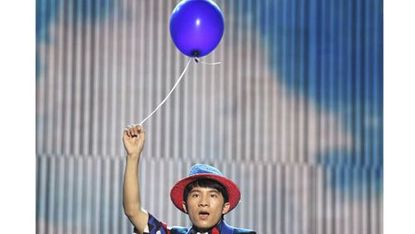
In China, reality-television shows such as China's Got Talent are so adored, they attract peak audiences of almost a half-billion, equivalent to the entire populations of the United States, Canada, and Mexico combined. But not for long. The Communist regime, disapproving of the country's "tasteless and vulgar" reality fare, is yanking the plug.
Effective January 1, a government ruling allows the country's 34 satellite TV channels to show only two "light entertainment" shows per week, encouraging them to create more programs on traditional culture, arts, and sciences.
Since reality TV exploded onto Chinese screens around 2005, the genre has spawned an estimated 130 wildly popular shows, including Mongolian Cow Yoghurt Super Girl (their version of American Idol); China's Next Top Model; and a Project Runway copycat, Magical Talented Design-ers. After Susan Boyle's rise to global fame, Chinese underdogs flocked to enter singing contests. A shop worker dubbed "Little Fatty" wowed audiences by belting out Whitney Houston classics, while a farmer in a tattered overcoat won the nation's hearts by crooning old love songs.
Chinese cadres started to get hot under their Mao collars about the trend last year when the popular matchmaking show If You Are The One fell foul of censors for promoting "a materialistic, gold-digging attitude among female contestants." When a 22-year-old model from Beijing named Ma Nuo ridiculed an unemployed potential match by telling him, "I'd rather be crying inside a BMW than laughing on your bicycle," the remark made headlines. On the show Run for Love, a short man was snubbed by female contestants until he bragged about his 1.5-carat diamond ring, luxury apartment, and Lamborghini. Then they all wanted him. Officials decried such behavior as "equivalent to prostitution" and ordered the shows to discuss taking care of the elderly and disabled orphans. Ratings nose-dived.
The current curbs on reality TV, says Chinese author and social commentator Lijia Zhang, are evidence that, despite growing economic freedom, the long arm of the government is still there. But she doubts such censorship will be effective. "They can pull the plug on entertainment shows, but they can't stop young Chinese from being increasingly opinionated and harder to brainwash."
Stay In The Know
Marie Claire email subscribers get intel on fashion and beauty trends, hot-off-the-press celebrity news, and more. Sign up here.
-
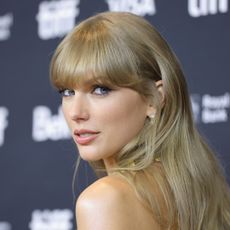 All the Easter Eggs and Name Drops on Taylor Swift's 'The Tortured Poets Department,' Explained
All the Easter Eggs and Name Drops on Taylor Swift's 'The Tortured Poets Department,' ExplainedDigging through the fan theories so you don't have to.
By Quinci LeGardye Published
-
 This Week's Best On-Sale Picks Include a Tory Burch Bag and Pretty Silver Ballet Flats
This Week's Best On-Sale Picks Include a Tory Burch Bag and Pretty Silver Ballet FlatsWarm weather is finally here—it's time to dress like it.
By Brooke Knappenberger Published
-
 A Sporty It-Sneaker Era Is About to Begin
A Sporty It-Sneaker Era Is About to BeginNike's next Air models are designed for Olympic athletes, but they'll soon be all over street style.
By Halie LeSavage Published
-
 36 Ways Women Still Aren't Equal to Men
36 Ways Women Still Aren't Equal to MenIt's just one of the many ways women still aren't equal to men.
By Brooke Knappenberger Last updated
-
 EMILY's List President Laphonza Butler Has Big Plans for the Organization
EMILY's List President Laphonza Butler Has Big Plans for the OrganizationUnder Butler's leadership, the largest resource for women in politics aims to expand Black political power and become more accessible for candidates across the nation.
By Rachel Epstein Published
-
 Want to Fight for Abortion Rights in Texas? Raise Your Voice to State Legislators
Want to Fight for Abortion Rights in Texas? Raise Your Voice to State LegislatorsEmily Cain, executive director of EMILY's List and and former Minority Leader in Maine, says that to stop the assault on reproductive rights, we need to start demanding more from our state legislatures.
By Emily Cain Published
-
 Your Abortion Questions, Answered
Your Abortion Questions, AnsweredHere, MC debunks common abortion myths you may be increasingly hearing since Texas' near-total abortion ban went into effect.
By Rachel Epstein Published
-
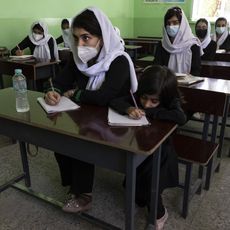 The Future of Afghan Women and Girls Depends on What We Do Next
The Future of Afghan Women and Girls Depends on What We Do NextBetween the U.S. occupation and the Taliban, supporting resettlement for Afghan women and vulnerable individuals is long overdue.
By Rona Akbari Published
-
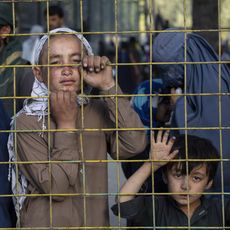 How to Help Afghanistan Refugees and Those Who Need Aid
How to Help Afghanistan Refugees and Those Who Need AidWith the situation rapidly evolving, organizations are desperate for help.
By Katherine J. Igoe Published
-
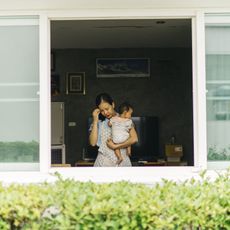 It’s Time to Give Domestic Workers the Protections They Deserve
It’s Time to Give Domestic Workers the Protections They DeserveThe National Domestic Workers Bill of Rights, reintroduced today, would establish a new set of standards for the people who work in our homes and take a vital step towards racial and gender equity.
By Ai-jen Poo Published
-
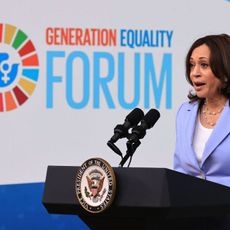 The Biden Administration Announced It Will Remove the Hyde Amendment
The Biden Administration Announced It Will Remove the Hyde AmendmentThe pledge was just one of many gender equity commitments made by the administration, including the creation of the first U.S. National Action Plan on Gender-Based Violence.
By Megan DiTrolio Published